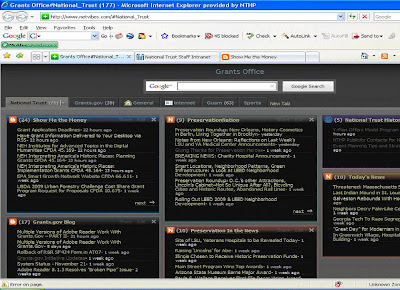Japanese American Confinement Sites grant applications are now available for the preservation and interpretation of U.S. confinement sites where Japanese Americans were detained during World War II. Grants are awarded to organizations and entities working to preserve historic Japanese American confinement sites and their history, including: private nonprofit organizations, educational institutions, and state, local, and tribal governments, and other public entities. Applications are due by March 4, 2010.
Grants will be awarded through a competitive process and require a non-Federal match in at least a 2:1 ratio (2 Federal to 1 non-Federal match). The minimum grant request is $5,000.
Use and Use Restriction: Japanese American Confinement Sites grant funds may be used for identifying, researching, evaluating, interpreting, protecting, restoring, repairing, and acquiring historic confinement sites where Japanese Americans were detained during World War II as authorized by the Preservation of Japanese American Confinement Sites Act of 2006 (Public Law 109-441, 120 STAT 3288, 16 USC 461).
These historic confinement sites are defined as the ten War Relocation Authority internment camps (Gila River, Granada, Heart Mountain, Jerome, Manzanar, Minidoka, Poston, Rohwer, Topaz, and Tule Lake), as well as other historically significant locations, as determined by the Secretary of the Interior, where Japanese Americans were detained during World War II. These sites are specifically identified in "Confinement and Ethnicity: An Overview of World War II Japanese American Relocation Sites", published by the Department of the Interior, National Park Service, Western Archeological and Conservation Center, in 1999. Public Law 109-441 (16 USC 461) prohibits land acquisition at sites other than: Heart Mountain (WY), Honouliuli (HI), Jerome (AR), Rohwer (AR), and Topaz (UT).
Match requirement: Each grant requires a 2:1 Federal to non-Federal match; that is, to receive two dollars of Federal funds at least a one dollar non-Federal match is required. The match may be composed of cash or in-kind contributions. The non-Federal match may be raised and spent during the grant period; it does not have to be “in the bank” at the time of the application. Projects must benefit one or more historic Japanese American confinement sites.
Project categories include: •Capital projects- including construction of new interpretive centers, restrooms, and interpretive trails. •Documentation- including identification, research, and evaluation of historic confinement sites; projects may include archeological surveys, National Register of Historic Places nominations, and National Historic Landmark nominations. •Oral history interviews- including recording, transcribing, digitally processing and sharing the interviews. •Interpretation and education related to historic confinement sites- projects may include wayside exhibits, creative arts and educational curricula. •Preservation of confinement sites and related historic resources- projects may include stabilization, rehabilitation, restoration, acquisition, relocation of historic buildings and structures to their original locations, reconstruction of key structures, and collections conservation. •Planning projects- such as interpretive plans for new exhibits and programs, land use plans, and resource management plans. •Non-Federal real property acquisition- allowed only with the owner’s written permission at only Jerome, Rohwer, Topaz, and Honouliuli, per stipulations of Public Law 109-441.
Grant applications are available via the Japanese American Confinement Sites Grant website: http://www.nps.gov/history/hps/HPG/JACS/index.html. The website includes the application, forms, instructions and guidelines available for downloading at no cost.
DO NOT SUBMIT AN ELECTRONIC APPLICATION.
Submit applications to: (For Postal Service Delivery) National Park Service ATTN: Kara Miyagishima P.O. Box 25287 Denver, CO 80225-0287 (For Express Delivery) National Park Service ATTN: Kara Miyagishima 12795 West Alameda Pkwy. Lakewood, CO 80228-2838 Applications must be received by THURSDAY, MARCH 4, 2010.
Document Type: Grants Notice
Funding Opportunity Number: NPS-IMRO-JACS2010
Opportunity Category: Discretionary
Posted Date: Jan 04, 2010
Creation Date: Dec 29, 2009
Original Closing Date for Applications: Mar 04, 2010
Current Closing Date for Applications: Mar 04, 2010
Archive Date: Apr 03, 2010
Funding Instrument Type: Grant
Category of Funding Activity: Other (see text field entitled "Explanation of Other Category of Funding Activity" for clarification)
Category Explanation: This grant provides for the preservation and interpretation of historic Japanese American confinement sites in order that present and future generations may learn and gain inspiration from these sites and that these sites will demonstrate the Nation’s commitment to equal justice under the law.
Expected Number of Awards: 40
Estimated Total Program Funding:
Award Ceiling:
Award Floor: $5,000
CFDA Number(s): 15.933 -- Preservation of Japanese American Confinement Sites
Cost Sharing or Matching Requirement: Yes
Japanese American Confinement Sites Grant Program website
>>Read more >>
